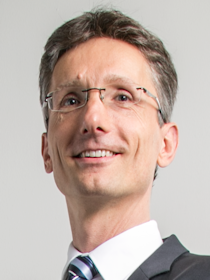Physical Internet and the opportunities for more sustainable logistics in e-commerce

The Physical Internet (PI) is a future vision on completely open and connected logistics networks, revolving around physical, digital, operational and financial connectivity. Exchange between logistical parties, the bundling of deliveries and the sharing of storage and transport capacity create opportunities for a more efficient and sustainable logistics in e-commerce.
In the coming years, Professor of Quantitative Logistics Kees Jan Roodbergen and his colleagues Paul Buijs and Iris Vis will be studying the potential role of micro-hubs in PI constellations. Micro-hubs are small-scale logistical operations in fixed locations with a small geographical catchment area, such as city centres, residential districts or streets. Together with his partners Districon, ViaTim, Cycloon/Fietskoeriers.nl, Wehkamp, DHL, Centric, IMCC, Dropper and ZUPR, Roodbergen received a grant of € 500,000 from TKI Dinalog for this study. The research will focus on three components: parcel delivery by local residents, combined logistics for physical shops and online stores, and the role of bicycle couriers.
Parcel delivery by local residents
The smallest type of micro-hub is the street hub, a package-sorting hub that can be located in a private house. ViaTim is a start-up company that is setting up street hubs, where DHL delivers packages from online stores such as wehkamp.nl. The street hub forms a new link in the current logistics chain but also reduces the stops and mileage for delivery vans.
Combined logistics for shops and online stores
Physical shops and online stores often still use separate logistics. Integration creates opportunities, for example to deliver online orders through physical shops or to supply shops faster. This integration will turn physical shops into micro-hubs, as intended in the Physical Internet vision. Districon, Centric, IMCC and ZUPR aim to close to the gap between the logistics for online and offline product sales.
Bicycle couriers
More and more bicycle courier businesses are emerging in cities. They work in city hubs, where they handle the last stage of delivery in an environmentally-friendly way. Together with Cycloon/Fietskoeriers.nl and Dropper, this study will map the opportunities for bicycle couriers in PI-based networks.
More information
- For more information, please contact Kees Jan Roodbergen, Professor of Quantitative Logistics
- See also the extensive project description: PIONEER: Physical Internet, an Outlook on Neighborhood and Environment for E-commerce Retail
________________________________________________
> More news from the Faculty of Economics and Business
> FEB experts in the media


| Last modified: | 29 February 2024 10.02 a.m. |
More news
-
25 April 2024
Lineke Sneller appointed as Professor of Practice of Digitalization & AI in Accounting and Auditing
The Faculty of Economics and Business (FEB) is pleased to announce that as of 1 May, professor Lineke Sneller will be appointed as Professor Practice of Digitalization & AI in Accounting and Auditing. The chair is situated within the department of...
-
25 April 2024
Jenny van Doorn and co-authors receive 2024 Weitz-Winer-O’Dell Award
Jenny van Doorn and co-authors Martin Mende, Maura L. Scott (both Florida State University), Dhruv Grewal (Babson College) and Ilana Shanks (Stony Brook University) have won the 2024 Weitz-Winer-O’Dell Award. They received the award for their paper...
-
19 April 2024
New thesis prize for master's students of Economics and Business
How can we encourage economics and business students to deal with important societal challenges in their master's thesis? The 14 Dutch faculties of economics and business, united in the Council of Deans in Economics and Business (DEB), have set up...
